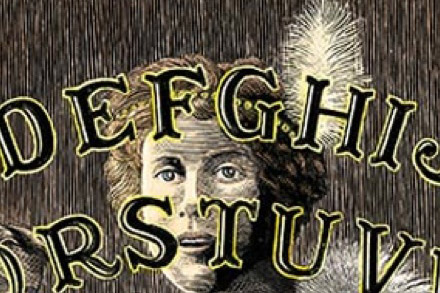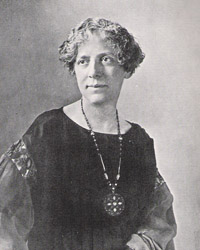
By Michael Tymn
Her works were compared with Shakespeare, Chaucer, and Spenser. She was called a wit, a poet, a dramatist, a philosopher, and a literary genius.
Of her book, Hope Trueblood, a reviewer for Lady’s Pictorial of London offered: ‘[This book] will stand as a landmark of fiction by a new writer, who will take a prominent place among great writers. From the Chicago Mail: ‘You will wonder at the sheer beauty of the story’s thought and diction. You will be convinced that here is a tale from the pen of a master word builder.’ A New York Tribune review of Hope Trueblood read: ‘The psychological analysis and invention of the occult, the dramatic power displayed in the narrative are extraordinary, and stamp it as a work approximating absolute genius.’
Her most celebrated work, The Sorry Tale, a 644-page, 325,000 word novel about the last days of Jesus, was released in June 1917. The New York Globe stated that it exceeded Ben Hur and Quo Vadis as ‘a quaint realistic narrative.’ The Columbus (Ohio) Dispatch opined that no other book gives one so clear a view of customs, manners, and character of the peoples of the time and place.
The author called herself Patience Worth. She said she migrated to the United States during the 17th century and was killed at age 44 by Indians. Patience began dictating her many works through the mediumship of Pearl Curran, (below) a St Louis, MO, housewife in 1913. Over a period of 24 years, she dictated some 4 million words, including seven books, some short stories, several plays, thousands of poems, and countless epigrams and aphorisms. Initially, the dictation came through the Ouija board, but they later came through automatic writing with a pencil.

Professor Roland Greene Usher, dean of history at Washington University, called The Sorry Tale ‘the greatest story of Christ penned since the Gospels were finished.’ He pointed out that the book was written in 17th century English with no anachronisms. In one of her novels, Patience dictated, ‘I wot he fetcheth in daub-smeared smock.’ Even in the early 1900s, the word ‘fetch’ was rarely used, but when used it meant to ‘go and get’ someone or something. Patience used it as synonymous with ‘came’ or ‘cometh,’ which philologists confirmed as the word’s original meaning.
WT Allison, professor of English literature at the University of Manitoba, observed that Patience Worth dictated words found only in Melton’s time and some of them had no meaning until researched in dialectic dictionaries and old books. Allison, who closely observed Curran, reported that in one evening 15 poems were produced in an hour and 15 minutes, an average of five minutes for each poem. ‘All were poured out with a speed that Tennyson or Browning could never have hoped to equal, and some of the 15 lyrics are so good that either of those great poets might be proud to have written them,’ Allison offered.
When a philologist asked Patience how and why she used the language of so many different periods, she responded: ‘I do plod a twist of a path and it hath run from then till now.’ When asked to explain how she could dictate responses without a pause, she replied: ‘Ye see, man setteth up his cup and fillet it, but I be as the stream.’
Although incomplete census records revealed several women named Patience Worth living in New England during the 17th century, there was no way to confirm this Patience Worth was one of them, or to otherwise provide veridical information supporting spirit communication. However, since Curran had only an eighth-grade education and had not traveled beyond Chicago, scholars and scientists who observed Curran taking dictation – as much as 5,000 words in one sitting – struggled to explain where the words and wisdom were coming from. If they came from her subconscious, how did it get there?
Dr Walter Franklin Prince, who investigated for the American Society for Psychical Research, summed it up this way: ‘Either our concept of what we call the subconscious must be radically altered, so as to include potencies of which we hitherto have had no knowledge, or else some cause operating through but not originating in the subconsciousness of Mrs Curran must be acknowledged.’
When one investigator asked Patience if she and Mrs Curran were the same entity, Patience lashed out at him: ‘She be but she and I be me.’
Professor Allison said that Patience Worth ‘must be regarded as the outstanding phenomenon of our age, and I cannot help thinking of all time.’
Patience Worth was often asked to comment on various subjects. She usually responded without any hesitation. Here is a sampling of her responses:
On life: ‘Life is a gaysome trickster. Yea, life poureth about the atoms o’ man wines of cunning, and equally is he filled up of Him. Thereby is man given freely and his lighting unto life leaveth him for his choosing. Aye, and the giving be wry-fallen atimes, for flesh to tarry long and dance with life, fearing the greater thing athin it.’
On how man is to know God: ‘Alawk! Thy heart is packed afull o’ Him, brother. Aye, and thou knowest. Then speak so, and say ‘tis well, for sure as sun shall rise, thy dust shall rise and blow unto new fields of new days. Thou hast walled up thy heart o’ words and yet it showeth although the patches o’ thy words.’
On death: ‘Cheap pence paid for eternity and yet man whines!’
On laughter: ‘Me thinks that of all the gifts from Thy prolific hand, laughter, next to love, is dearest.’
On learning: ‘Wisdom scratcheth the itch of the lout, while learning searchest for the flea.’
On the press: ‘The gab wench of the day!’
On the women of her day: ‘Chattels; beasties, verily. Ye should have seen me mither’s thumb – flat with the twistin’ o’ flax, and me in buskins, alookin’ at the castle, and dreaming dreams!
On the doctors of her day: ‘A sorry lot, eh? Aye, and they did for to seek of root and herb; – aye, and play ‘pon the wit, or the lackin’ o’ it!’
|